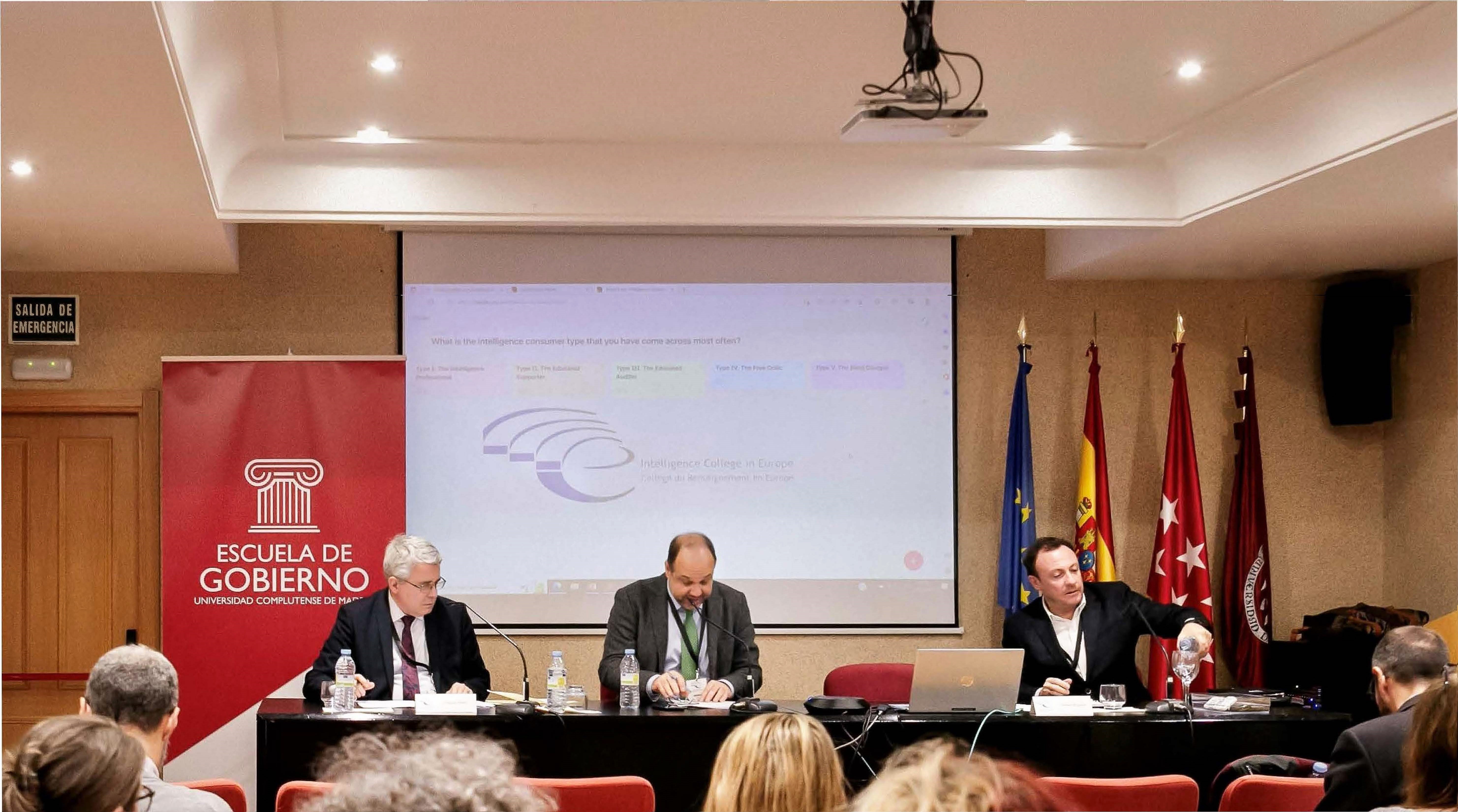
On December 14, 2022, the Complutense University of Madrid hosted the “Intelligence Services and Society” Seminar, attended by representatives of the ICE Members, experts, academics and some EU officials.
The two panels were led by experts on the topic and a group of young people, whose profiles and interests intended to contribute and stimulate out-of-the box thinking and improve the conclusions.
The main ideas and agreements covered during the morning session were as follows:
- One of the most important phases of the intelligence cycle is the relationship between the producer (Intelligence agencies) and the customer (decision makers);
- Beside the feedback on intelligence products, the customers should be involved in the drawing of the actions priority list of the intelligence agencies;
- It is crucial to increase the trust between the intelligence agencies and the customers, to avoid misunderstandings by working closer and using a common language;
- The assumption and understanding of roles from both sides. On the one hand, the legitimate right of the elected political leadership to determine the political agenda. On the other hand, the willingness of the Intelligence service to provide the authorities with the best possible intel;
- Reassure the level of professional knowledge within the intelligence agencies.
A number of perspectives emerged in the general discussions of the second panel, such as:
- The need to change the definition of security, without restricting it to the traditional safety concepts. For young generations, security means cybersecurity, environmental security, safe social media use, energy security issue (meaning affordable and sustainable energy) and economy safety. This would be linked to the necessity of making youth part of the security process;
- The stereotypes that define how intelligence services are perceived, as well as the fake press notes coming from the media are a challenge for the agencies;
- These misunderstandings might be counteracted by giving credit to TV movies and films that truly reflect the job of the intelligence services;
- Younger generations communicate through short videos. Making use of digital contents, especially video material, or engaging in social networks should be considered;
- Possibility of creating a Youth Council at the ICE.